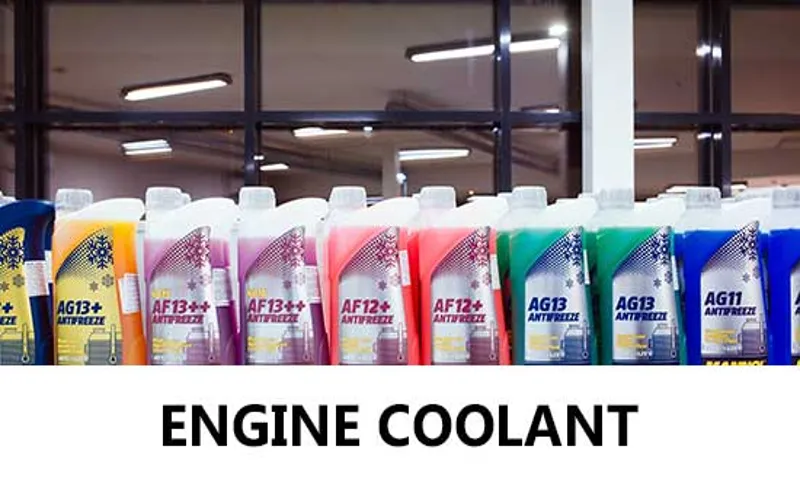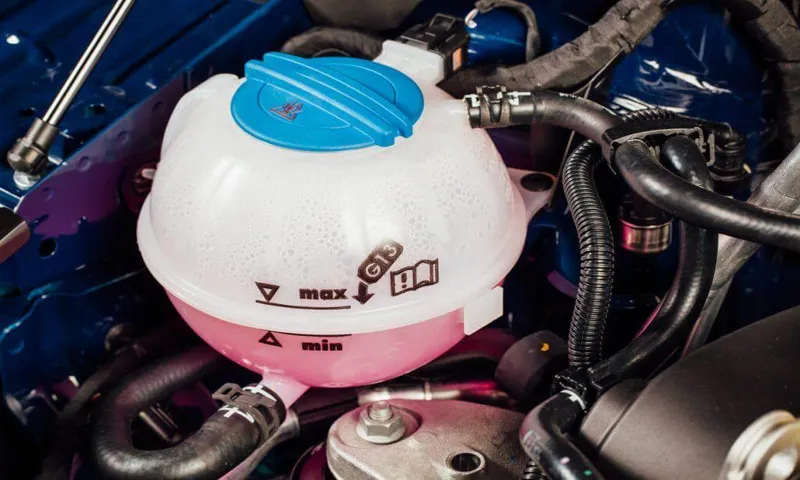Have you ever wondered how long coolant can actually last in your car? It’s a question that many car owners ask themselves, yet the answer may surprise you. Just like any other fluid in your car, coolant doesn’t last forever. Over time, it can begin to break down and lose its effectiveness, putting your engine at risk of overheating.
So, how long does coolant last in a car? Well, it really depends on a variety of factors, including the type of coolant you’re using, the conditions you’re driving in, and how well you maintain your vehicle. In this blog post, we’ll explore the lifespan of coolant and give you some tips on how to know when it’s time to replace it. So, grab a cup of coffee and let’s dive in!
Table of Contents
Introduction
Have you ever wondered how long the coolant in your car should last? Well, the lifespan of coolant can vary depending on several factors. Typically, coolant can last anywhere from 2 to 5 years or around 30,000 to 50,000 miles. However, it is always a good idea to consult your car’s owner’s manual for specific guidelines.
The longevity of coolant can be influenced by several factors such as the quality of the coolant used, the overall condition of your car’s cooling system, and the driving conditions you encounter. Extreme temperatures, heavy stop-and-go traffic, and frequent short trips can all degrade the coolant more quickly. It’s important to regularly check your coolant level and have it changed as recommended by your car’s manufacturer to ensure optimal engine performance and prevent overheating.
Remember, regular maintenance is key to keeping your car running smoothly!
Importance of Coolant
coolant, importance of coolant

What is Coolant?
Coolant is a vital component in keeping our cars running smoothly and preventing the engine from overheating. But what exactly is coolant and why is it important? Well, coolant, also known as antifreeze, is a fluid that is used to regulate the temperature of the engine. It is typically a mixture of water and ethylene glycol, although there are other types of coolant available as well.
The main purpose of coolant is to absorb and transfer the heat that is generated by the engine, helping to keep it at a safe operating temperature. Without coolant, the engine would quickly overheat, which can cause serious damage and ultimately lead to engine failure. So, it’s safe to say that coolant plays a crucial role in the overall health and performance of our vehicles.
Signs of Coolant Problems
coolant problems. Introduction: Keeping your vehicle’s coolant system in good working condition is crucial for the overall performance and longevity of your vehicle. Coolant, also known as antifreeze, plays a vital role in regulating the engine’s temperature and preventing it from overheating.
However, like any other component in your vehicle, the coolant system can develop issues over time. It’s important to be aware of the signs of coolant problems so that you can address them promptly and prevent potentially costly repairs. In this article, we will discuss some common signs that indicate you may be experiencing coolant problems with your vehicle.
Factors Affecting Coolant Lifespan
So, you’re wondering how long coolant should last in your car? Well, the lifespan of coolant can vary depending on a few factors. One of the biggest factors is the type of coolant you’re using. There are different types of coolant, such as ethylene glycol-based coolant and propylene glycol-based coolant, and each type has its own lifespan.
Typically, ethylene glycol-based coolant can last for up to five years or 150,000 miles, while propylene glycol-based coolant can last for up to seven years or 200,000 miles. However, it’s important to note that these are just general guidelines and the actual lifespan of coolant in your car can be affected by other factors as well. For example, extreme temperatures, harsh driving conditions, and the overall maintenance of your cooling system can all impact the lifespan of your coolant.
So, it’s a good idea to regularly check your coolant level and condition, and consult your vehicle’s owner manual for specific recommendations on coolant lifespan.
Type of Coolant
coolant lifespan, factors affecting coolant lifespan, type of coolant, coolant efficiency, maintaining coolant quality
Maintenance and Care
coolant lifespan In order to keep your vehicle running smoothly, it’s important to properly maintain and care for your coolant. The lifespan of coolant can be affected by a variety of factors, and understanding these factors can help you better maintain your vehicle’s cooling system. One factor that can greatly impact coolant lifespan is the quality of the coolant itself.
Using a high-quality coolant that meets the manufacturer’s specifications can help ensure a longer lifespan. Additionally, how your vehicle is driven can also play a role. Extreme driving conditions, such as towing heavy loads or driving in hot climates, can put extra stress on the cooling system and cause the coolant to degrade more quickly.
Regular maintenance, such as flushing and replacing the coolant at recommended intervals, is also crucial for maintaining the lifespan of the coolant. By keeping these factors in mind and taking proper care of your coolant, you can help prolong its lifespan and keep your vehicle running efficiently.
Quality of Coolant
coolant lifespan
Average Coolant Lifespan
When it comes to coolant in your car, you may be wondering how long it should last before it needs to be replaced. Well, the average lifespan of coolant in a car is around two to five years. This can vary depending on various factors such as the type of coolant used, driving conditions, and maintenance practices.
Coolant is a crucial component in your car’s cooling system, as it helps regulate the engine temperature and prevent overheating. Over time, coolant can break down and lose its effectiveness, which is why it is important to regularly check and replace it if necessary. So, if you haven’t had your coolant replaced in a while, it might be a good idea to schedule a maintenance appointment with your mechanic.
They can give your cooling system a thorough inspection and let you know if your coolant needs to be changed. Remember, taking care of your coolant is essential for the overall health and performance of your car’s engine.
Manufacturer Recommendations
average coolant lifespan, manufacturer recommendations. The average lifespan of coolant in a car can vary depending on several factors, including the type of coolant used and the manufacturer’s recommendations. Generally, manufacturers recommend changing the coolant every 30,000 to 50,000 miles or every two to three years, whichever comes first.
However, it’s important to note that these are just general guidelines and the specific recommendations for your car can be found in the owner’s manual or by contacting the manufacturer directly. Following the manufacturer’s recommendations is important because coolant plays a crucial role in keeping your engine cool and preventing it from overheating. Over time, coolant can become contaminated with dirt, debris, and other contaminants, which can reduce its effectiveness.
Additionally, coolant can break down over time, leading to a loss of its protective properties. Regularly changing your coolant can help ensure that your engine stays cool and runs smoothly. So, don’t forget to check your owner’s manual or consult with the manufacturer to determine the recommended interval for changing your coolant.
Typical Lifespan Range
average coolant lifespan, typical lifespan range
Conclusion
In the vast world of automotive maintenance, few debates rival the eternal question of how long coolant should last in a car. It’s a conundrum that has puzzled philosophers, scholars, and car enthusiasts alike for centuries. But fear not, dear reader, for I am here to shed some light on this perplexing matter.
You see, coolant is like the unsung hero of your car’s engine, working tirelessly behind the scenes to keep things cool and prevent overheating. It’s a bit like a secret agent, silently and efficiently going about its mission to protect your engine from the scorching heat of combustion. Now, imagine if James Bond took an extended vacation every few months.
Chaos would ensue, and all hell would break loose. In a similar vein, coolant needs to be on its toes at all times, ready to take down any would-be villains in the form of excess heat. But here’s the thing: coolant isn’t invincible.
It can only withstand so much before it starts to lose its effectiveness. Much like a secret agent after a particularly long mission, coolant gets tired and worn out. And when it reaches that point, it’s time to bid adieu to the old and welcome the new.
So, how long should coolant last in a car, you ask? Well, the answer isn’t set in stone. It depends on various factors, such as the type of coolant, driving conditions, and the age of your vehicle. As a general rule of thumb, most experts recommend changing your coolant every two to five years.
Think of it as giving your secret agent coolant a well-deserved vacation and replacing it with a fresh recruit. It’s like a rejuvenating spa day for your car’s engine, ensuring that it stays cool, calm, and collected for miles to come. So, remember, dear reader, the next time you find yourself pondering the lifespan of coolant in your car, don’t be overwhelmed by the uncertainty.
FAQs
How long should coolant last in a car?
Coolant typically lasts between 2 to 5 years or 30,000 to 50,000 miles, depending on the type of coolant used and driving conditions.
What happens if coolant is not replaced in a car?
If coolant is not replaced regularly, it can lead to engine overheating, potential damage to the engine, and costly repairs.
Can I mix different types of coolant in my car?
It is generally recommended to not mix different types of coolant, as it can cause chemical reactions, reduce coolant effectiveness, and potentially damage the cooling system.
How often should I check the coolant level in my car?
It is advisable to check the coolant level every few months or before long trips, and especially before the summer and winter seasons when temperature fluctuations are more common.
What are the signs of low coolant in a car?
Some signs of low coolant include overheating, a sweet smell coming from the engine, coolant level dropping in the reservoir, and the heater not working properly.
Can I top up the coolant myself or should I take my car to a professional?
Topping up the coolant can be done by yourself if you have the necessary knowledge and tools. However, if you are unsure, it is always safer to take your car to a professional to prevent any potential damage.
Is it normal for coolant to evaporate over time?
It is normal for a small amount of coolant to evaporate over time, but a significant loss of coolant may indicate a leak in the cooling system that should be inspected and repaired.


